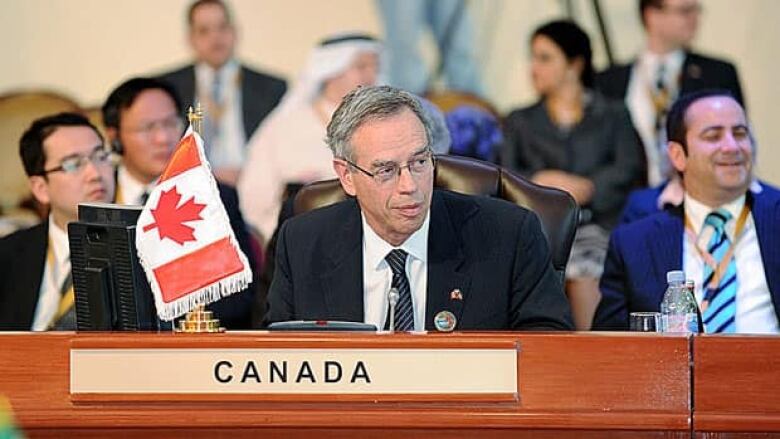Anti-oilsands measures threaten energy security, Oliver says

There is plenty of oil sands oil for all buyers and it's not dirtier than any other type of oil, Canada's Natural Resources Minister told delegates at the International Energy Forum in Kuwait.
Tuesday at the general assembly of the IEF, Joe Oliver described Canada as an important contributor to world energy security. He also defended Alberta bitumen against the European Commission's Fuel Quality Directive, which would assign the resource a higher greenhouse gas value than conventional types of oil.
"Any policies that discriminate against oilsands will impede the free flow of global oil supplies and are detrimental to overall energy security," he told the conference.
Oliver reinforced this point in meetings he had with EU ministers from Germany, France, the U.K., Poland and Belgium. He outlined the Canadian position in a letter that will eventually be sent to all EU environment and energy ministers.
The Canadian government calls the European Commission's proposed Fuel Quality Directive "discriminatory and non-science based."
He also met with his counterpart from South Korea and executives from the Japanese industrial giant Mitsubishi in an effort to drum up more Asian customers for Canada's energy resources. Canada currently exports almost all of its oil and gas to the United States.
"It always makes sense to have more than one customer. The Asia-Pacific economies are growing at a much more rapid rate," he said on a Wednesday teleconference callafter the two-day event.
The IEF has 88 member countries and their energy ministers meet every two years to talk about world energy issues.












_(720p).jpg)


 OFFICIAL HD MUSIC VIDEO.jpg)
.jpg)



























































































